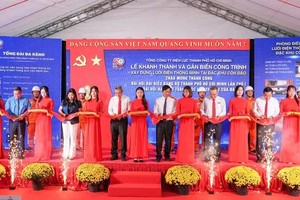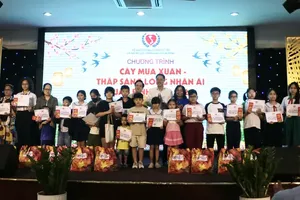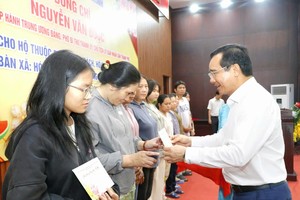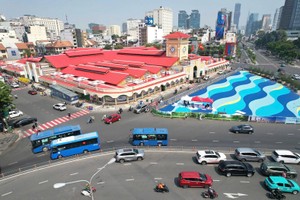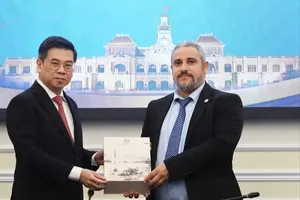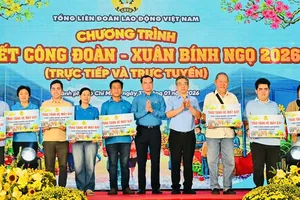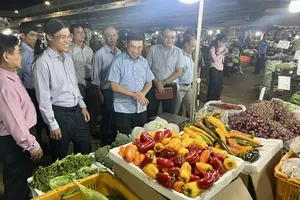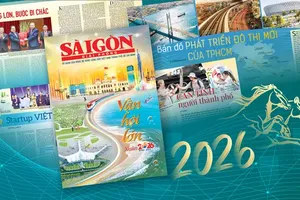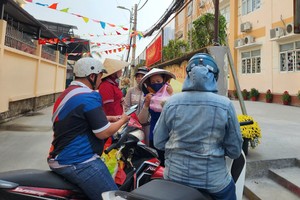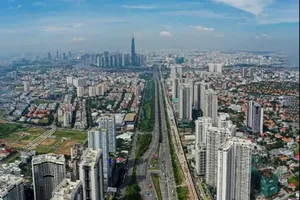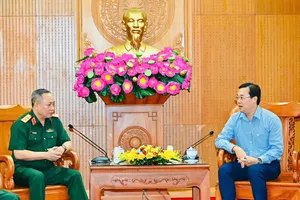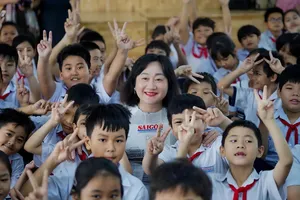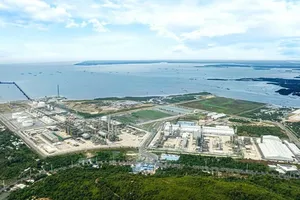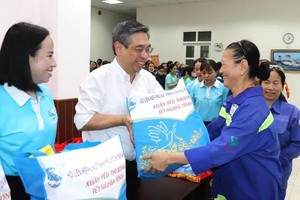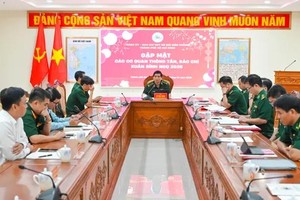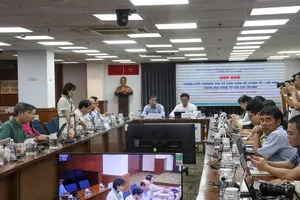Defining a new strategic partnership
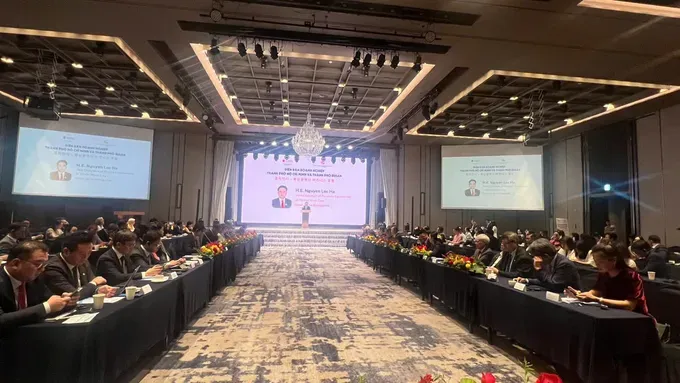
In his opening speech, Vice Chairman of the Ho Chi Minh City People’s Committee Nguyen Loc Ha emphasized that over the past 30 years, Ho Chi Minh City and Busan have cultivated a strong and enduring partnership across a wide range of sectors, including trade, investment, education, healthcare, logistics, high technology, smart urban development, and coastal tourism. The cooperation between the two cities extends beyond economic indicators, serving as a shared commitment to adapting to and shaping emerging global trends such as the digital economy, green growth, and sustainable global connectivity.
Ho Chi Minh City currently spans more than 6,700 square kilometers, with a population approaching 14 million and a Gross Regional Domestic Product (GRDP) exceeding US$115 billion, aiming to become an "international megacity", a leading hub for finance, commerce, logistics, and high technology in the ASEAN region.
Recognizing the strong potential for cooperation, Vice Chairman of the Ho Chi Minh City People’s Committee Nguyen Loc Ha called on South Korean businesses, particularly those based in Busan, to explore investment opportunities in five key priority sectors:
1. High-tech and Semiconductor Industry – The city seeks to attract investment in semiconductor design, manufacturing, testing, and the production of electronic components and biotechnology. These efforts aim to deepen integration into global value chains.
2. Logistics and Seaport Development—Leveraging the advantages of deep-water ports in Ba Ria–Vung Tau and its strategic location in the region, Ho Chi Minh City plans to develop a modern logistics system with direct connections to international maritime routes.
3. International Finance and Trade Services—Through the implementation of the Vietnam International Financial Center project, the city aims to expand collaboration with Busan’s financial institutions and service enterprises in areas such as green finance, insurance, and fintech.
4. High-Quality Education, Healthcare, and Tourism – The city is promoting partnerships in workforce training, the development of modern medical infrastructure, sea tourism products, and MICE (Meetings, Incentives, Conferences, and Exhibitions) tourism.
5. Smart City Development and Green Economy—Ho Chi Minh City learns from Busan and South Korea’s experience in planning, smart urban management, renewable energy development, circular economy, and climate change response.
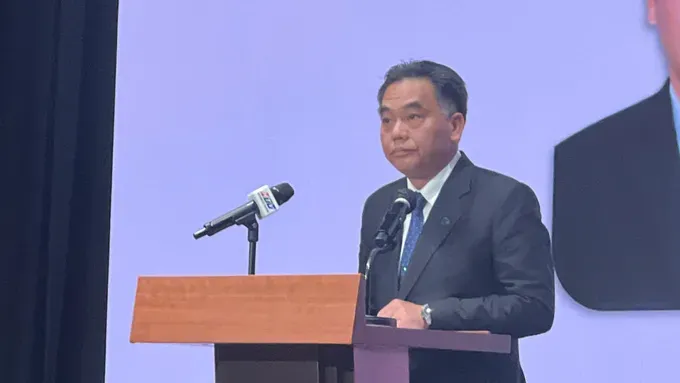
Busan Deputy Mayor Lee Jun-seung extended a warm welcome to the delegation from Ho Chi Minh City, expressing his appreciation for the enduring friendship and cooperation between the two cities since the establishment of their partnership in 1995. He emphasized that the bilateral ties have brought many practical results in the fields of transportation, urban planning, culture, and port development.
Noting the geographical and structural similarities between the two cities, Busan—South Korea’s leading port city—and Ho Chi Minh City—Vietnam’s largest economic hub, Busan Deputy Mayor Lee Jun-seung underscored the significant potential for further collaboration.
Since 2008, Busan has opened a trade office in Ho Chi Minh City, serving as a vital bridge for business exchanges, training programs, volunteer initiatives, and cultural exchanges. These efforts have significantly contributed to enhancing mutual understanding and strengthening the bonds of friendship between the people of both cities.
Building on this foundation, Mr. Lee Jun-seung expressed hope that the current Business Forum would yield concrete and sustainable outcomes.
Focusing on strategic sectors to drive new value through partnership
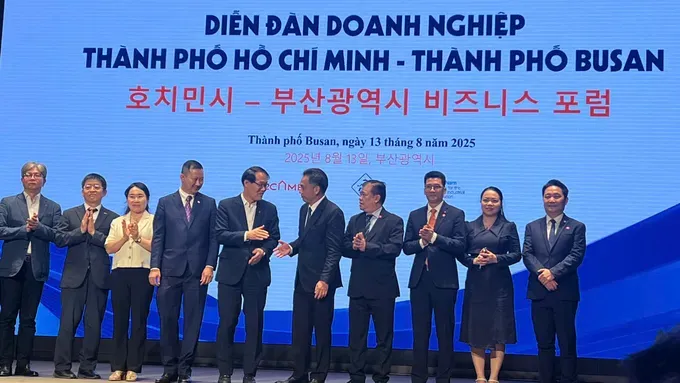
At the forum, representatives from Ho Chi Minh City introduced five strategic sectors prioritized for future cooperation, including high-tech industries and semiconductors; logistics and seaport development, leveraging the deep-water port advantages of Ba Ria–Vung Tau; international finance and trade services; high-quality education, healthcare, and tourism; and smart urban development and green economy initiatives. Ho Chi Minh City’s leaders hoped that Busan would become a key partner in realizing these goals.
The forum focused on concrete cooperation solutions, including green transition, the development of high-tech industries, the application of artificial intelligence (AI) in healthcare, smart city development, and the expansion of two-way tourism cooperation.
Leaders from Ho Chi Minh City’s departments and agencies, along with representatives from Busan, had direct discussions about potential supportive policies and strategic development directions. These exchanges helped businesses from both sides gain clearer insights into practical investment prospects.
A highlight of the event was the signing of several memoranda of understanding (MoUs) between enterprises of South Korea and Ho Chi Minh City, marking a significant step forward in bilateral economic cooperation.
Among the key agreements, Becamex IDC and Korea Land & Housing Corporation (LH) committed to jointly developing smart urban projects, while Becamex and LS Electric agreed to collaborate on the establishment of a smart factory in Vietnam. In the healthcare sector, NTD AI Healthcare Vietnam and Korea’s NTL Healthcare signed an MoU to cooperate on AI-powered cervical cancer screening. Meanwhile, Epsi Vietnam and Myongji Hospital of South Korea reached an agreement to develop a leading nursing and rehabilitation center in Ho Tram. These agreements open up new channels for technology transfer, resource sharing, and market connectivity, laying the groundwork for sustainable, high-impact cooperation between the two sides.
At the forum, Vice Chairman of the Ho Chi Minh City People’s Committee, Nguyen Loc Ha, reaffirmed the city’s commitment to further improving its investment and business environment by streamlining administrative procedures and ensuring greater transparency and maintaining stable and favorable incentive policies for foreign investors, particularly those from South Korea.
The city also focuses on enhancing key infrastructure sectors, including transportation, seaports, logistics, energy, and telecommunications, creating favorable conditions for innovation, supporting the startup ecosystem, strengthening R&D connectivity, and promoting the development of high-value service industries.
The forum will serve as a launching pad for new collaborative ideas, the formation of strategic partnerships, and the incubation of landmark projects. The success of the event will be measured by trust and commitment to long-term cooperation, Vice Chairman of the Ho Chi Minh City People’s Committee Nguyen Loc Ha stressed.
Ho Chi Minh City and Busan: Expanding economic cooperation and leveraging bilateral strengths
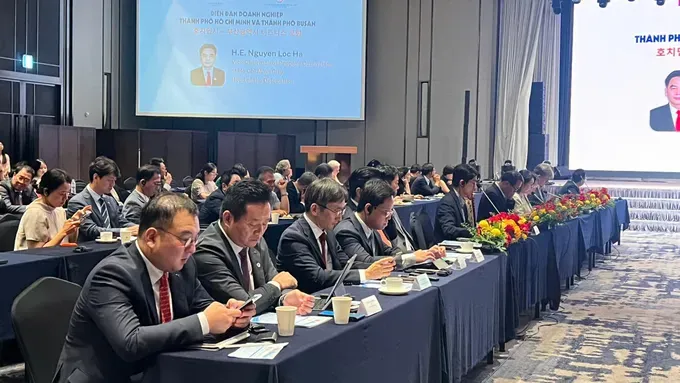
Speaking at the ceremony marking the 30th anniversary of the establishment of friendly and cooperative relations between Ho Chi Minh City and Busan, an event that also featured the official launch of the Consulate General of Vietnam in Busan, Secretary of the Ho Chi Minh City Party Committee Nguyen Van Nen affirmed that the potential for cooperation between the two cities remains substantial.
South Korea currently ranks as the fourth-largest foreign investor in Ho Chi Minh City, with over 3,000 active projects and a total registered FDI capital exceeding US$5.5 billion. Korean enterprises, including those from Busan, are playing an increasingly vital role in the city’s socio-economic development, as well as its ongoing industrialization and modernization efforts.
The Secretary of the Ho Chi Minh City Party Committee emphasized that, as the city enters a new phase of development with expanded space, enhanced capabilities, and new conditions, there are numerous opportunities for cooperation between the two sides. He highlighted key potential sectors and strengths, including digital transformation, innovation, education and training, tourism, high-tech industries, logistics, the maritime economy, and people-to-people exchanges.
Ho Chi Minh City is striving to become a regional and international hub for economy, finance, services, trade, logistics, high-tech industries, and marine tourism. Meanwhile, Busan, South Korea’s leading port city and a major urban center in Northeast Asia, is renowned not only for its logistics, shipbuilding, and advanced maritime industries but also as a center of knowledge, innovation, healthcare, education, and culture, especially for the strong development of smart cities associated with digital transformation, sustainable growth, and environmental friendliness.
Ho Chi Minh City highly values and appreciates the Korea Chamber of Commerce and Industry, with nearly 1,000 members and 169 representative offices actively engaged across various economic, cultural, and social sectors, providing strong community support.
The 30th anniversary of the friendly and cooperative relations between the Korean city and Vietnam’s Ho Chi Minh City today stands as a vivid testament to the depth of the two cities’ partnership and underscores the vital role of local cooperation within the broader framework of substantive relations between our two countries. Secretary of the Ho Chi Minh City Party Committee, Nguyen Van Nen, emphasized.
